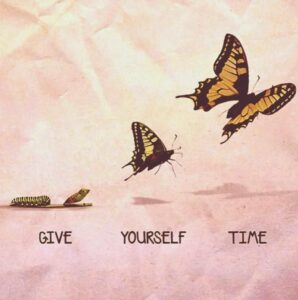If you are living with bipolar disorder or ADHD, you may feel like you are all alone. You may not know where to turn for help. The good news is that there is a lot of information available on both conditions. In this comprehensive guide, we will discuss the similarities and differences between ADHD and bipolar disorder, as well as the treatments available for each condition. We hope that this guide will provide you with the information you need to make informed decisions about your treatment plan.
Contents
ADHD And Its Symptoms
 ADHD is defined as a mental disorder that is characterized by problems with focus, hyperactivity, and impulsiveness. It is one of the most commonly diagnosed mental disorders in children and can also be diagnosed in adults. This condition is often comorbid with other mental disorders, such as anxiety and depression.
ADHD is defined as a mental disorder that is characterized by problems with focus, hyperactivity, and impulsiveness. It is one of the most commonly diagnosed mental disorders in children and can also be diagnosed in adults. This condition is often comorbid with other mental disorders, such as anxiety and depression.
There are three types of ADHD: inattentive type, hyperactive-impulsive type, and combined type. According to studies, boys tend to be diagnosed with the disorder more often than girls.
The symptoms of ADHD can vary from person to person, but they typically fall into two categories: inattention and hyperactivity-impulsivity.
Symptoms of inattention
- Difficulty paying attention to detail or making careless mistakes
- Struggling to sustain attention during tasks or conversations
- Appearing not to listen when spoken to directly
- Failing to follow through on instructions or complete tasks
- Avoiding or procrastinating on tasks that require sustained mental effort
- Losing things necessary for tasks or activities
- Being easily distracted by irrelevant stimuli
- Being forgetful in daily activities.
Symptoms of hyperactivity and impulsivity
- Fidgeting or squirming when seated
- Excessive talking
- Running or climbing in situations where it is inappropriate
- Blurting out answers before hearing the whole question
- Having difficulty waiting for one’s turn inline
These are just a few symptoms that are commonly seen in people with ADHD. It’s important to remember that everyone experiences these symptoms differently and not everyone who has ADHD will experience all of the symptoms.
Bipolar And Its Symptoms
 Bipolar is a disorder that causes extreme mood swings. These mood swings can include periods of depression, mania, or a mix of both. People with bipolar often have trouble functioning day to day due to the unpredictable nature of their moods.
Bipolar is a disorder that causes extreme mood swings. These mood swings can include periods of depression, mania, or a mix of both. People with bipolar often have trouble functioning day to day due to the unpredictable nature of their moods.
There are several types of bipolar disorder, but the most common is type II. Type II is characterized by more frequent and severe episodes of depression than mania. Many people with type II also experience what is called “mixed episodes” where they feel both depressed and manic at the same time.
Bipolar disorder usually develops in late adolescence or early adulthood, but it can also occur in children and older adults. It is estimated that about two percent of the population suffers from some form of bipolar disorder. The symptoms of bipolar disorder can be categorized into three categories;
Symptoms of depression
- feeling hopeless
- worthless
- helpless
- loss of interest in activities
- fatigue
- changes in appetite or weight
- sleep problems
- difficulty concentrating
- and thoughts of death or suicide.
Symptoms of mania
- feeling excessively happy or “high”
- having more energy than usual
- being easily distracted
- talking more than usual
- feeling pressure to keep talking
- sleeping less than usual but not feeling tired
- having an unrealistic sense of self-importance or ability (grandiosity)
- engaging in risky behaviors such as spending sprees, sexual promiscuity
Symptoms of mixed episodes
In the mixed bipolar state, a person experiences both depression and mania simultaneously or rapidly switching between the two.
- mood swings that are more frequent and intense
- uncontrollable anger
- irritability
- anxiety or panic attacks
- insomnia
- impulsivity
- drug or alcohol abuse.
Many of the symptoms of bipolar overlap with other mental disorders such as anxiety and depression. As a result, it is important to see a mental health professional for an accurate diagnosis.
How ADHD And Bipolar Are Related?
 ADHD and bipolar disorder share some symptoms, such similar symptoms are;
ADHD and bipolar disorder share some symptoms, such similar symptoms are;
- impulsivity,
- irritability,
- and problems with concentration.
Although, ADHD does not involve periods of mania or depression-like bipolar disorder. However, both conditions can make it difficult to function at work or school and in social situations.
There are some differences between the two disorders. The main difference between the two is bipolar affects the mood, whereas ADHD only affects the person’s ability to focus.
Bipolar disorder is characterized by extreme changes in mood, from high (mania) to low (depression). People with bipolar disorder also may experience periods of normal mood. ADHD, on the other hand, is not defined by changes in mood. It’s a neurodevelopmental disorder that primarily affects a person’s ability to focus and concentrate.
However, some people with ADHD also have symptoms of bipolar disorder, which can make the diagnosis more complicated. In fact, up to 30 percent of people with ADHD also have bipolar disorder.
According to studies, ADHD and Bipolar are related in various ways. There is one theory that suggests that the two disorders share a common genetic link. Another study found that people with ADHD are more likely to develop bipolar disorder later in life. So, do not get confused if you or your loved one is diagnosed with both conditions.
How To Diagnose ADHD And Bipolar?
 Diagnosis of ADHD and bipolar is difficult because the symptoms can overlap. Many people with ADHD also have bipolar disorder and vice versa. To make matters worse, both conditions are often misdiagnosed.
Diagnosis of ADHD and bipolar is difficult because the symptoms can overlap. Many people with ADHD also have bipolar disorder and vice versa. To make matters worse, both conditions are often misdiagnosed.
The best way to diagnose either condition is to see a mental health professional for an evaluation. They will ask about your symptoms and family history. And may also do a physical exam to rule out other potential causes of your symptoms.
Moreover, the diagnosis usually requires a comprehensive assessment, which includes:
- Clinical interview
- Review of your medical history
- Observation of your behavior
- Psychological testing
- Physical examination
The mental health professional will then make a diagnosis based on the criteria in the Diagnostic and Statistical Manual of Mental Disorders.
The most important thing to remember is that both ADHD and bipolar disorder are treatable. There are a variety of treatments available, and the best course of treatment will be unique to each person. So, if the diagnosis is confusing, don’t give up hope. Seek professional help, and you will find the treatment that’s right for you.
How To Treat ADHD And Bipolar?
The treatment for ADHD and bipolar disorder is quite different. However, medication and therapy are widely used for both. If you or your child has been diagnosed with one of these disorders, it’s important to work with a mental health professional to create the best treatment plan.
Medications
ADHD and bipolar disorder are both commonly treated with medication. The most common preferred medications are Stimulants. These include;
- Methylphenidate
- Amphetamines
- Dexamfetamine
- Lisdexamfetamine
Mood stabilizers, such as lithium and valproic acid, are often used to treat bipolar disorder. These medications can help to even the symptoms. Antidepressants are also used to treat both disorders. Selective serotonin reuptake inhibitors (SSRIs) are generally the first type of antidepressant tried.
Common SSRIs used to treat bipolar disorder and ADHD include;
- Fluoxetine
- Paroxetine
- Sertraline
- Venlafaxine
Therapy
 Both cognitive-behavioral therapy (CBT) and interpersonal therapy (IPT) are effective in treating bipolar disorder. CBT helps people with bipolar disorder manage their symptoms by changing the way they think and behave.
Both cognitive-behavioral therapy (CBT) and interpersonal therapy (IPT) are effective in treating bipolar disorder. CBT helps people with bipolar disorder manage their symptoms by changing the way they think and behave.
IPT focuses on helping people with bipolar disorder understand and cope with the interpersonal relationships that may trigger their symptoms.
Family therapy is also often used to treat children and adolescents with bipolar disorder. This type of therapy can help families understand the disorder and learn how to support each other.
So, these types of therapies are widely prescribed for both ADHD and bipolar disorder. If you are unable to find the right therapist for you or your loved ones. Them consider Mantra Care, a platform that helps you book appointments with the best mental health professionals in your area. Book your free consultation today for more information.
Self-Help Tips
Self-help is always a great place to start when dealing with any mental health issue. And lucky for you, there are quite a few things you can do to help yourself if you have both ADHD and bipolar disorder. Here are a few tips:
Educate Yourself About ADHD and Bipolar
This is the primary thing. If you don’t understand your disorders, it will be difficult to manage them. Learn all you can about both ADHD and bipolar disorder. This way, you’ll be able to identify your triggers and warning signs and know how to deal with them effectively. In fact, learning about the disorder can be therapeutic in and of itself.
Find A Support System
Support systems are essential during the journey of recovery from a mental disorder. Because having ADHD and bipolar can be isolating, it’s important to find people who understand what you’re going through. There are many online and offline support groups for people with mental disorders. Find one that resonates with you and make sure to attend regularly.
Adopt A Healthy Lifestyle
 A healthy lifestyle is important for everyone, but it’s especially crucial for those with ADHD and bipolar disorder. These include;
A healthy lifestyle is important for everyone, but it’s especially crucial for those with ADHD and bipolar disorder. These include;
- eating a balanced diet
- getting regular exercise
- getting enough sleep
- avoid alcohol on daily-basis
- manage stress in a healthy way
By taking care of your body, you’ll be better equipped to deal with the symptoms of both ADHD and bipolar disorder. Moreover, a healthy lifestyle can help to prevent future episodes.
Start A Journal
Journaling can be an extremely therapeutic activity for people with mental disorders. It allows you to get all your thoughts and feelings out on paper, which can help to lessen their intensity. It can also help you track your moods and see patterns that you may not have noticed before. If you’re not sure where to start, there are many journaling prompts online that can help get you started.
Practice Relaxation Techniques
Relaxation techniques are a great way to deal with the stress and anxiety that comes with having ADHD and bipolar disorder. There are many different techniques you can try, such as;
- yoga
- meditation
- deep breathing exercises
- progressive muscle relaxation
Find one that works best for you and make sure to practice regularly. Relaxation techniques can help to ease symptoms and prevent future episodes. More often, ADHD and bipolar are comorbid, meaning that people suffer from both disorders at the same time.
Give Yourself Time
 ADHD and bipolar is a mental disorder that simply means you have to take care of yourself more than the average person. So, be gentle with yourself and give yourself time to adjust to your new lifestyle changes. It takes time to develop new habits and learn how to effectively manage your disorders. But with time and patience, you’ll get there.
ADHD and bipolar is a mental disorder that simply means you have to take care of yourself more than the average person. So, be gentle with yourself and give yourself time to adjust to your new lifestyle changes. It takes time to develop new habits and learn how to effectively manage your disorders. But with time and patience, you’ll get there.
In fact, many people with ADHD and bipolar go on to lead happy and successful lives. So, don’t lose hope. These self-help tips can get you started on the path to recovery. Remember, you’re not alone in this journey. There are many people who understand what you’re going through and are here to support you.
Conclusion
To conclude, ADHD and bipolar disorder share many similarities, but there are also important differences. Both disorders can be effectively treated with medication and/or therapy. And, according to studies, both conditions can improve with treatment.
If you or someone you know has been diagnosed with ADHD, it’s important to remember that bipolar disorder is also a possibility. Be sure to talk to your doctor about all of your symptoms and concerns. With the right diagnosis and treatment, you can live a happy and healthy life.
For more information, please contact MantraCare. ADHD is a neurodevelopmental disorder characterized by difficulty in paying attention, hyperactivity, and impulsivity. If you have any queries regarding Online ADHD Counseling experienced therapists at MantraCare can help: Book a trial ADHD therapy session


